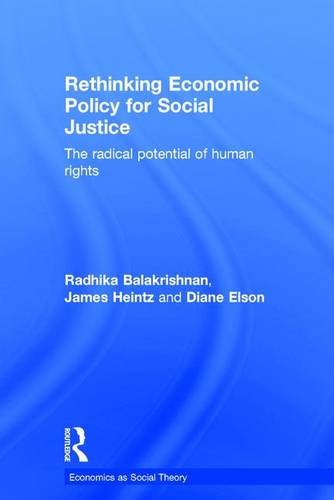

Most ebook files are in PDF format, so you can easily read them using various software such as Foxit Reader or directly on the Google Chrome browser.
Some ebook files are released by publishers in other formats such as .awz, .mobi, .epub, .fb2, etc. You may need to install specific software to read these formats on mobile/PC, such as Calibre.
Please read the tutorial at this link: https://ebookbell.com/faq
We offer FREE conversion to the popular formats you request; however, this may take some time. Therefore, right after payment, please email us, and we will try to provide the service as quickly as possible.
For some exceptional file formats or broken links (if any), please refrain from opening any disputes. Instead, email us first, and we will try to assist within a maximum of 6 hours.
EbookBell Team

0.0
0 reviewsThe dominant approach to economic policy has so far failed to adequately address the pressing challenges the world faces today: extreme poverty, widespread joblessness and precarious employment, burgeoning inequality, and large-scale environmental threats. This message was brought home forcibly by the 2008 global economic crisis.
Rethinking Economic Policy for Social Justice shows how human rights have the potential to transform economic thinking and policy-making with far-reaching consequences for social justice. The authors make the case for a new normative and analytical framework, based on a broader range of objectives which have the potential to increase the substantive freedoms and choices people enjoy in the course of their lives and not on not upon narrow goals such as the growth of gross domestic product. The book covers a range of issues including inequality, fiscal and monetary policy, international development assistance, financial markets, globalization, and economic instability. This new approach allows for a complex interaction between individual rights, collective rights and collective action, as well as encompassing a legal framework which offers formal mechanisms through which unjust policy can be protested.
This highly original and accessible book will be essential reading for human rights advocates, economists, policy-makers and those working on questions of social justice.